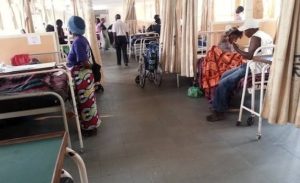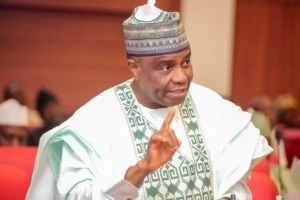Nigeria’s Education Commission Vows to Tackle Challenges Facing Out-of-School Children
In a bid to address the alarming number of out-of-school children in Nigeria, the Universal Basic Education Commission (UBEC) has reaffirmed its commitment to tackling the challenges contributing to this issue. According to UBEC’s Executive Secretary, Aisha Garba, children from poor homes in rural communities are the most affected due to poverty and hardship. Garba emphasized the need for intensified advocacy to address these challenges, highlighting the importance of education in breaking the cycle of poverty.
Speaking at a two-day Management Retreat in Uyo, Akwa Ibom State, Garba expressed concern over the minimal growth in enrollment rates for children between three to five years old between 2018 and 2022. She also noted that the decline in the teacher-student ratio has put a strain on teaching capacity, potentially compromising education quality. "The enrollment rate for children between three to five years saw minimal growth between 2018 and 2022. The decline in the teacher-student ratio indicates a strain on teaching capacity, potentially compromising education quality," Garba said.
The Minister of Education has pledged to reposition UBEC to make a significant impact in achieving Universal Basic Education (UBE) for all children, regardless of their background or location. To this end, UBEC has collaborated with State Universal Basic Education Boards (SUBEB) to make substantial interventions in infrastructure development, constructing thousands of schools and renovating hundreds of classroom blocks across the country. However, Garba noted that some states have experienced delays in accessing funds from the national education purse for teaching and infrastructural development, a challenge that the retreat aims to address.
Despite these challenges, UBEC has sustained improved investment to enhance the student-classroom ratio and infrastructure. As Garba emphasized, "UBEC has sustained improved investment to enhance the student-classroom ratio and infrastructure. Over the years, states have experienced delays in accessing the matching grant funds disbursed from the national level." The commission’s commitment to tackling these challenges is a step in the right direction, and it remains to be seen how effective these efforts will be in ensuring that all children in Nigeria have access to quality education.
As Nigeria continues to grapple with the issue of out-of-school children, the UBEC’s renewed commitment to addressing the challenges facing basic education is a welcome development. With the support of the Minister of Education and the collaboration of SUBEB, there is hope that the country can make significant progress in achieving Universal Basic Education for all children, regardless of their background or location. The success of these efforts will depend on the ability of UBEC and its partners to overcome the challenges facing basic education in Nigeria, and to ensure that all children have access to quality education.




